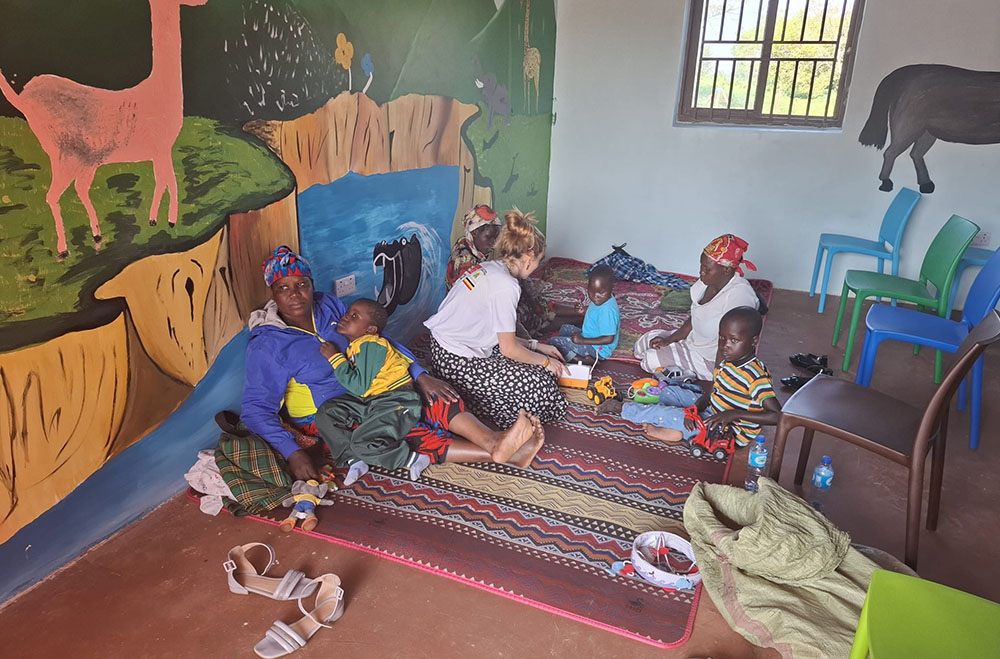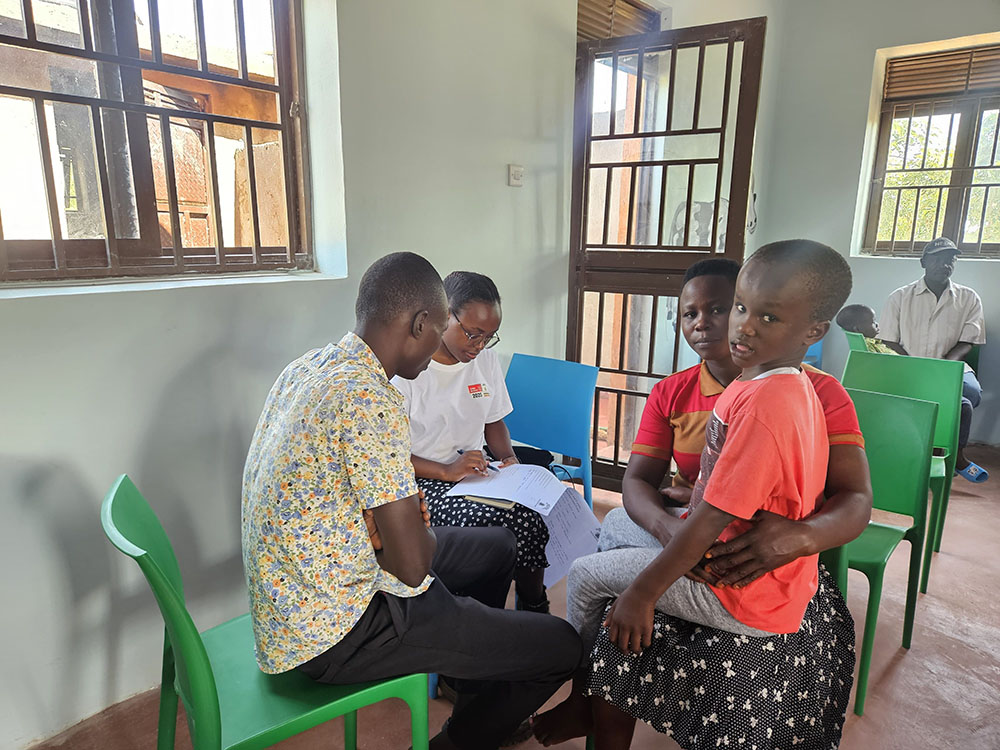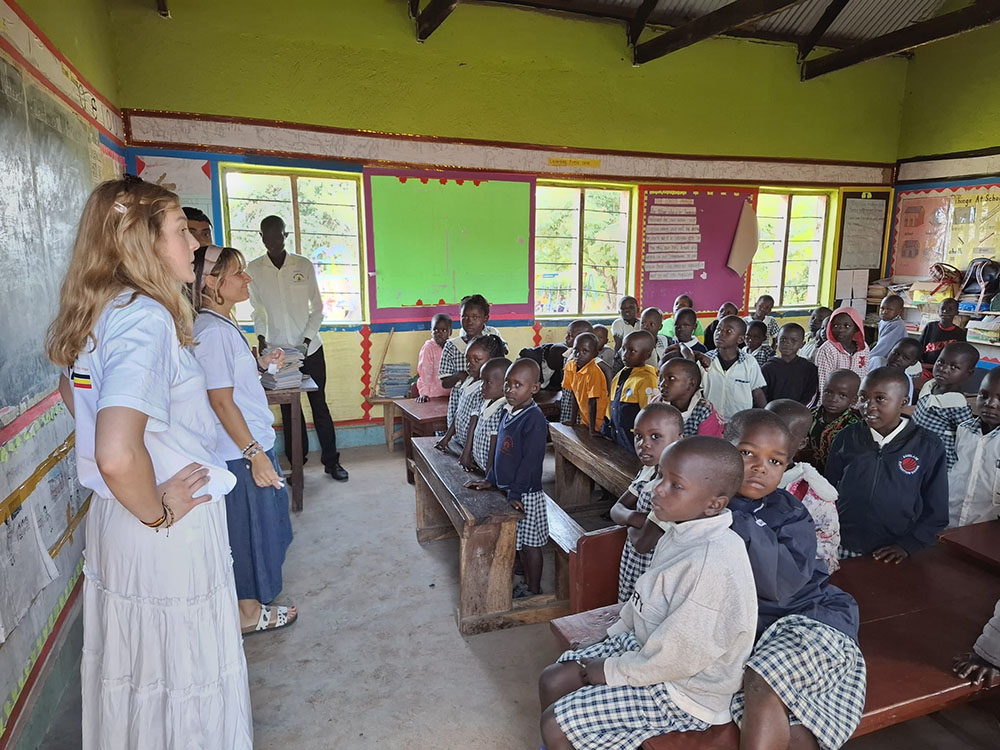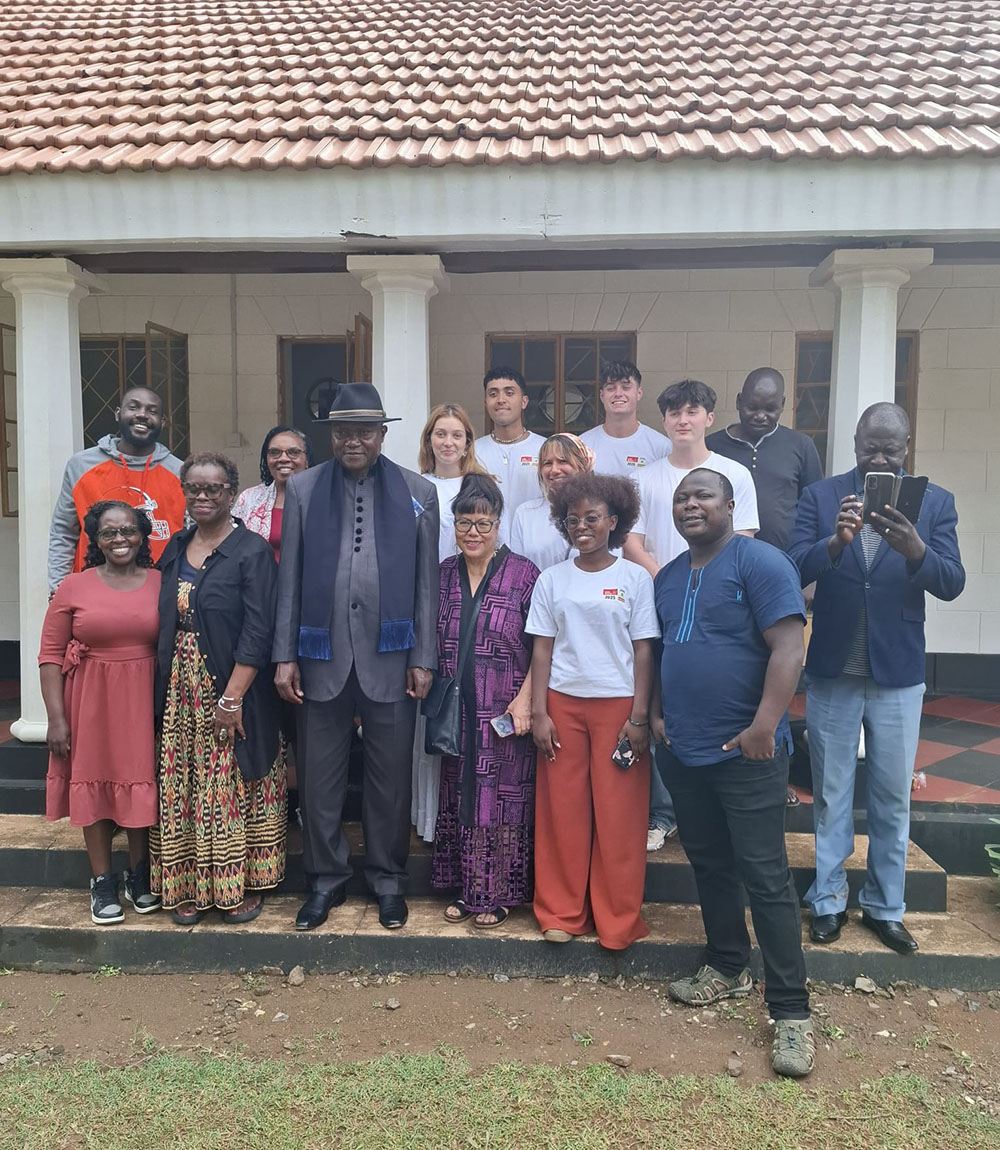British university partners with NGO to support children with disabilities in Manafwa
"This project seeks to locate all homesteads in Bugisu that have children with disabilities and bring them to light," Namatati explained. So far, the organisation has reached over 50 families with children who face various disabilities.
The team from University of West England and New Dawn International in a group photo with pupils at New Dawn Nursery and Primary School. (Photo by Lydia Nabwire)
By Lydia Nabwire
Journalists @New Vision
_________________
Jennifer Nabuwuule, a resident of Bumukari village in Kaato sub-county, Manafwa district, goes to church every Sunday with three of her four children. She takes the same number of children to school, leaving out the fourth one.
Her fourth child, the youngest child, has hydrocephalus and spina bifida. Hydrocephalus is a condition characterised by the accumulation of cerebrospinal fluid in the brain, leading to increased pressure inside the skull.
A student interacting with parents and children with special needs at New Dawn International, a non governmental organisation. (Photo by Lydia Nabwire)
Birth defects can arise from various complications during pregnancy and childbirth, such as infections, insufficient folic acid, alcoholism, smoking, and uncontrolled diabetes, among other factors. Some causes may also be genetic, which can result in rapid head growth and other symptoms. In contrast, spina bifida is a specific birth defect characterised by the incomplete closure of the backbone and the membranes surrounding the spinal cord.
Nabuwuule is one of many parents who view these conditions as mythical curses, leading them to isolate their children from the broader community. In some severe cases, they may even confine the children to their homes. Stephen Walunyolo, the LC1 chairperson of Bunabuzale village in Kaato sub-county, Manafwa district, highlights that many parents of children with disabilities face stigma within their communities. "That is why parents choose to hide their children away from the rest of the community," Walunyolo explained.
Against this backdrop, Nathan Namatati, a native of the area currently living in the UK, partnered with his wife Sonya, to establish the first home for children with disabilities in eastern Uganda. Their non-governmental organisation (NGO), New Dawn International, aims to identify and support families in the Bugisu region who have children with disabilities.

A student from University of West England attending to a child with hydrocephalus who is under the care of Hidden People project. (Photo by Lydia Nabwire)
"This project seeks to locate all homesteads in Bugisu that have children with disabilities and bring them to light," Namatati explained. So far, the organisation has reached over 50 families with children who face various disabilities.
This initiative has been strengthened through a partnership with the University of the West of England under their Centre for African Strategy, along with collaboration from the Inzu Ye Bamasaba. Mian Ng, the university’s lead for global partnerships in social and cultural engagement, explained that they connect with African universities, NGOs, and local businesses to foster skill-sharing, knowledge exchange, and cultural collaboration.
"During his visit to England two years ago, Omukuuka Jude Mike Mudoma III called for collaboration between our university and the communities he leads," Mian noted.
In response to the Umukuuka’s request, New Dawn International took the lead in reaching out to the university to explore collaborative efforts, particularly in the areas of education and health.
"One of the programs, called Hidden People, is being implemented to provide sensitisation, healthcare, and education to marginalised children in the communities," Mian noted.
Students from the University of the West of England focused on assessing the needs of these hidden children, aiming to help the community understand their requirements. They conducted a strong sensitisation campaign to debunk myths surrounding disabilities and encouraged parents of children with disabilities to bring them into the open instead of hiding them away. The students also organised play sessions at the children’s homes to demonstrate that, just like typically developing children, disabled children enjoy playing as well.

Students from University of West England interacting with learners at New Dawn Nursery and Primary School. (Photo by Lydia Nabwire)
"We are grateful that parents have started to support our cause. This has enabled us to establish a support group where parents can come together with their children to share stories and experiences, and discuss a way forward. We have also set up a rehabilitation centre in the rural communities of Manafwa, which addresses conditions such as autism, cerebral palsy, epilepsy, hydrocephalus, and spina bifida," Namatati said.
Namatati hopes this program can be expanded nationwide, as preliminary findings suggest that the challenges are not limited to the Bugisu area.
"Despite their disability, they are still human beings. We, therefore, wish to continue engaging the parents of such children in the proper care and most importantly, to empower them with knowledge on how to give these children a quality life and education rather than hiding them away. If these children are given the right environment and the right tools, they can also progress. The more we encourage their parents, the more these children will contribute to society," Sonya Namatati said.

The team from University of West England and New Dawn International meeting the Bugisu cultural leader, Jude Mudoma during their visit in Uganda recently. (Photo by Lydia Nabwire)
During their time in Uganda, students from the University of the West of England also took the initiative to lead literacy classes at local primary schools. They established reading clubs and set up a structured rural library. Another group of students trained local creatives in Mbale on effective product marketing and business growth strategies. The university aims to continue sending students to collaborate not only in the Bugisu region but also with institutions such as Makerere University in the future.
